Вопреки военным действиям, Киевский институт «Энергопроект», владеющий стратегической информацией о советских атомных энергоблоках, продолжает вести сотрудничество с российскими партнерами. Это включает системную работу, где КИЭП оказывает содействие «Росатому» в строительстве АЭС «Пакш-2» в Венгрии и участвует в создании российской АЭС «Аккую» в Турции.
А перед этим институт участвовал в проектировании АЭС для белорусского диктатора Лукашенко, расположенного вблизи белорусско-литовской границы.
Как сообщили источники в правоохранительных органах, разрешение на работу с российской «атомкой» владелец «Энергопроекта» экс-нардеп Александр Дубовой получил благодаря личным связям с руководителем киевского филиала «Росатома» Александром Мертеном и договоренностям с представителем администрации президента РФ, куратором аннексированных территорий Дмитрием Козаком.
Из-за окружения путина Дубовой вышел на сотрудничество с «Росатомом»
Киевский институт «Энергопроект» (КИЭП), 50% акций которого в прошлом принадлежали российскому министру Михаилу Абизову, в 2017 году стал формально украинским: принадлежащие россиянам доли выкупила «Международная энергетическая компания» (МЭК), владельцами которой являются члены семьи нардепа от «Батькивщина» Александра Дубового. Теперь МЭК контролирует 71% акций предприятия, а еще 25% принадлежат государству.
Но есть одна деталь, которая объясняет, почему КИЭП сотрудничает с врагом и помогает “Росатому” строить атомные электростанции в Венгрии и Турции. Эта деталь скрывается за стенами бизнес-центра на столичном Печерске по ул. Мичурина, 54А, который связывают с Александром Дубовым, и в котором находятся офисы многих принадлежащих его семье компаний.
По этому адресу на 5 этаже расположен и офис Международной энергетической компании, по которой Дубовые владеют Киевским институтом “Энергопроект”. Также там находились офисы и других инженерно-строительных компаний семьи: ООО «Украинский строительно-инвестиционный альянс», ООО «Укратом Сервис», ООО «Бел Конструкт».
А на 4 этаже вплоть до 2022 года работал россиянин Александр Мертен, который был директором компании «Росатом Восточная Европа» и одновременно – представителем блока экономической разведки ФСБ. Сейчас Мертен является одним из руководителей строительства АЭС «Пакш-2» в Венгрии.
Росатом Восточная Европа – дочь Росатома, через которую российский монополист продвигал свои интересы в Украине. А сейчас – в Беларуси, странах Балтии, Молдове, Израиле, Армении, Грузии, Азербайджане и Кипре.
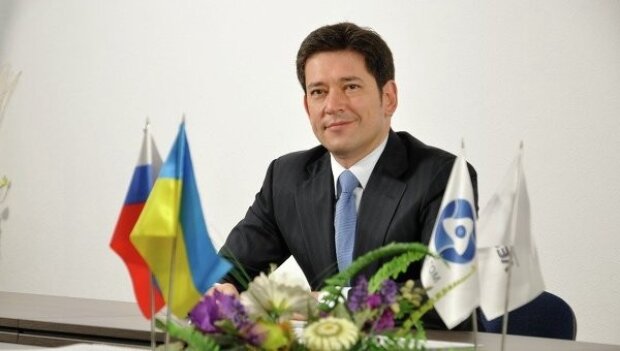
Мертен занимался украинским направлением в атомной отрасли. Именно он в 2017 году организовал личную встречу Дубового и Дмитрия Козака.
Дмитрий Казак – это одно из ключевых лиц в команде путина. На тот момент он работал вице-премьером в российском правительстве и с 2014 года занимался вопросами оккупационных властей России в Крыму, был куратором Сергея Курченко и других беглых олигархов. Также Козак курировал финансовые потоки так называемой ЛДНР и отвечал за переговорный процесс по минским соглашениям.
Разговор Казака с Дубовым касался венгерских контрактов «Росатома» и Киевского института «Энергопроект» в строительстве «Пакш-2». Кстати, вскоре в зону ответственности Козака вошли весь топливно-энергетический комплекс и промышленность России.
По информации журналистов, компании Дубовых постоянно выигрывали тендеры на поставку товаров и услуг для «Энергоатома», в то же время они имели контракты с Росатомом через связанные компании.
В частности, «Энергопроект» готовил проектную документацию для атомных станций Росатома, как в РФ, так и за ее пределами. Среди них – недавно запущенная в работу Белорусская АЭС, венгерская АЭС в городе Пакш, где Россия планирует достроить еще два блока, АЭС Нинь Тхуан во Вьетнаме, на строительство которой в Ханое наложен мораторий, хотя Москва все еще надеется на его отмену. другие.
Работа на Росатом: не только КИЭП
Но с россией среди фирм Дубовых связан не только КИЭП. Непосредственную связь имеет и консорциум «Атоммашпроект«. Из него российские основатели и владельцы вышли буквально за несколько месяцев до полномасштабного вторжения (хотя по факту они все равно остались в компании).
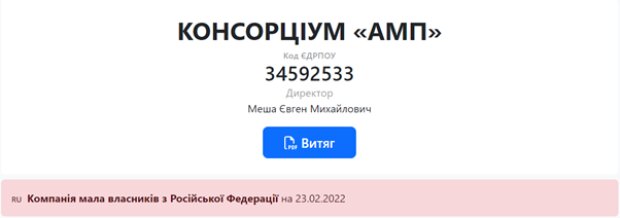
Атоммашпроект имеет двух учредителей: Киевский институт Энергопроект и Сумское машиностроительное объединение. Она производит насосное оборудование для энергоблоков АЭС. География поставок этих насосов (Россия, Украина, Армения, Болгария, Китай, Индия) говорит, что основным их заказчиком является Росатом.
Также у предприятия есть два бенефициарных собственника. Один из них – 23-летний сын экс-нардепа Марко Дубовой (в госреестрах по этой компании его фамилия записана как Дубовый).
Вторым бенефициаром является житель Сум Лукяненко Владимир Матвеевич. Но он стал акционером «Атоммашпроекта» только в октябре 2021 года. К тому времени пакетом акций предприятия владело «Сумское машиностроительное объединение».
Собственником “Сумского машиностроительного объединения” (а значит, и при “Атоммашпроекте”) много лет был российский бизнесмен Владимир Владимирович Лук’ яненко (Московская область, Одинцовский район).

В октябре 2021 года, чтобы избежать санкций в отношении «Сумского машиностроительного объединения», россиянин Лукьяненко В.В. уступил место владельца своему отцу – украинцу Лукяненко В. М. То же самое произошло с “Атоммашпроектом”.

По мнению россиян, замена одного Лукьяненко на другого должна была юридически вывести «Атоммашпроект» и «Сумское машиностроительное объединение» из-под санкционных рисков< a i=2>, однако не разорвать реальную связь предприятия с россией.
Но это им не помогло. В мае 2023 года на Лукьяненко-старшего Украина наложила санкции. Он имеет российское гражданство и российский индивидуальный налоговый номер, открытый в Москве (на это указывают первые две цифры нормера 77, означающие регион). Также он был лишен звания «Герой Украины».
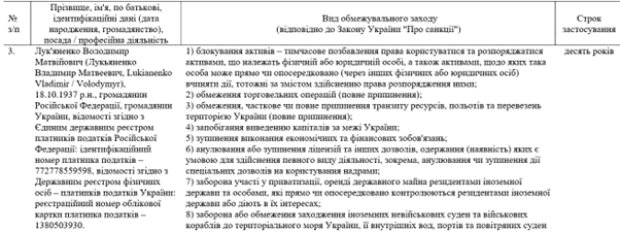
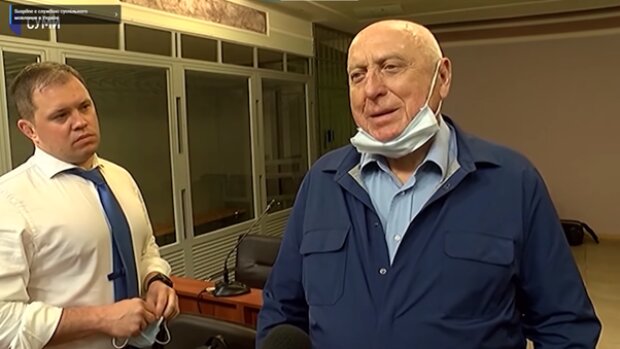
Таким образом, семья Дубовых в своих компаниях имеет на 100% российских бизнес-партнеров Лукьяненко, которые работают на Россию и платят налоги государству-врагу.
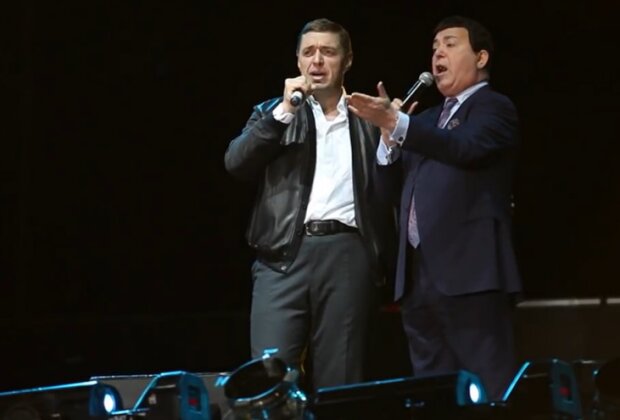
По подобной схеме, кстати, перед началом полномасштабного вторжения другое стратегическое предприятие – Харьковский институт “Энергопроект” (ХИЭП) – сменил своих владельцев. Акции, принадлежавшие российскому миллиардеру Алексею Мордашову, примерно так же перешли под контроль людей Александра Дубового. После этого была попытка рейдерского захвата с целью смены руководства стратегического предприятия на лояльное новому владельцу. Но эта попытка была эффективно заблокирована СБУ.
Поэтому, когда Дубовые утверждают, что их предприятие не сотрудничает с РФ и “не имеет никаких контрактов или каких-либо других контактов с ними представителями” – они откровенно врут. Россия буквально «вшита» в их бизнес.
Также Александр Дубовой много раз организовывал концерты артистов-путинолюбов Иосифа Кобзона и группы Любе на Бессарабии (юг Одесской области), которую он считает своей. Есть много свидетельств, что он на протяжении многих лет подогревал сепаратистские настроения в этом регионе. В 2015 году СБУ даже помешала там созданию Бессарабской народной республики.
Кстати, земляками Дубового являются экс-министр энергетики Иван Плачков и энергетический псевдоэксперт Виктор Куртев, всячески подпитывавший сепаратистскую тему об «особой геополитической роли» Бессарабии для (немало — немного!) «Евросоюза, Украины и России». По сообщениям СМИ, Виктор Куртрев даже наладил контакт с Дмитрием Затуливетером – так называемым лидером Народного Совета Бессарабии, который получал финансирование от ФСБ.
23-летний король «атомного» института
23-летний сын Александра Дубового — Марко Дубовой (13.04.2000 г.р.) — в государственных реестрах указан владельцем не только «атомного» института «Энергопроект». На него записано большинство фирм с орбиты семьи Дубовых (а именно – в 22 компании).
Еще в одной фирме – консорциуме “Атоммашпроект” – бенефициаром указан Марк Александрович Дубовой. Но дата рождения (13.04.2000) говорит нам, что он и Марко Дубовой – один человек.
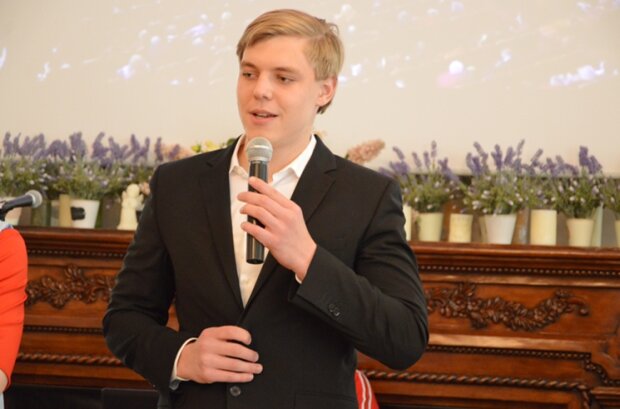
Марк Дубовой по образованию юрист – в 2021 году получил диплом бакалавра права в университете им. Шевченко.
В 2020 году из него пытались сделать медийное лицо. Для этого на сайте Обозреватель для него создали профиль автора, в котором Дубового представили: «общественный деятель, юрист, публицист». Но после пяти откровенно псевдоинтеллектуальных “статей” эксперимент забросили.
Очевидно, что он только номинальный владелец «империи Дубовых», в то время как реальные рычаги управления находятся в руках его отца. Именно он решает, с какими заказчиками работать и в каких российских проектах по строительству АЭС участвовать. Однако участием в строительстве АЭС «Пакш-2» в Венгрии они не ограничиваются.
Как сообщили нашему изданию источники в среде атомщиков, специалисты Киевского института «Энергопроект» вместе с участием в сооружении венгерской АЭС «Пакш-2» задействованы в разработке проектной документации для АЭС «Аккую», которую «Росатом» строит в Турции для второго пути Эрдогана. И все это происходит при согласии и поддержке Александра Дубового.
АЭС Аккую Росатом строит за счет беспроцентного кредита со стороны России в 20 млрд евро. Также россия бесплатно сопровождает проект на всех этапах: от проектирования, строительства и обучения персонала до утилизации радиоактивных отходов и вывода АЭС из эксплуатации. Это все может обойтись бюджету России в сумму, сопоставимую с расходами на строительство станции.
Это аттракцион неслыханной щедрости. За него Турция расплачивается политически: она не присоединяется к санкциям против России, а также помогает обходить те, что наложили другие страны. В частности, в 2023 году она втрое нарастила экспорт товаров двойного назначения в Россию.


